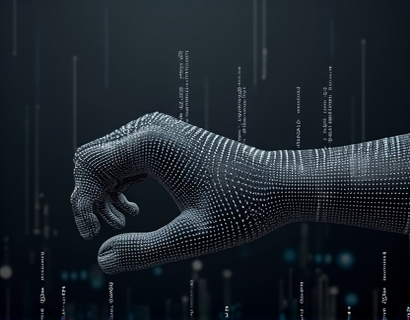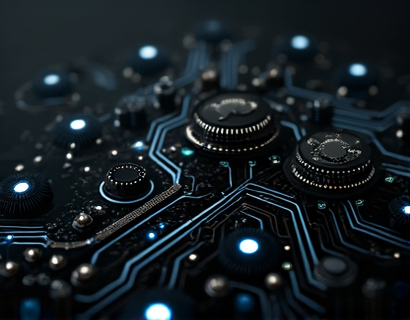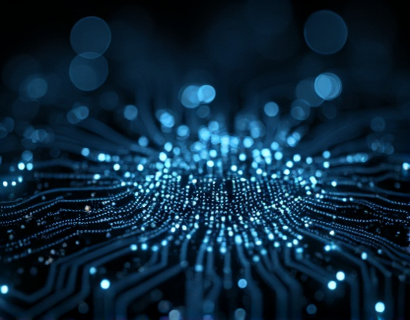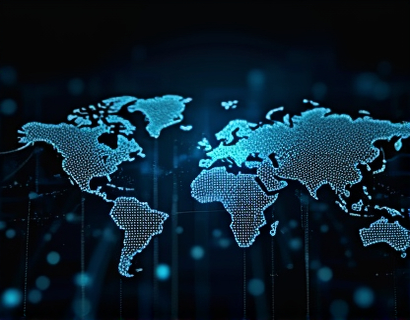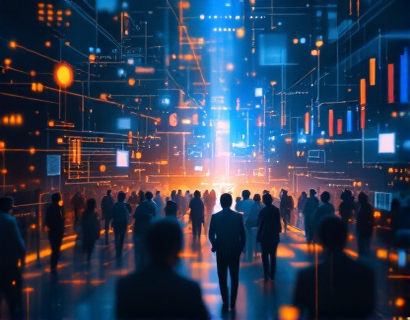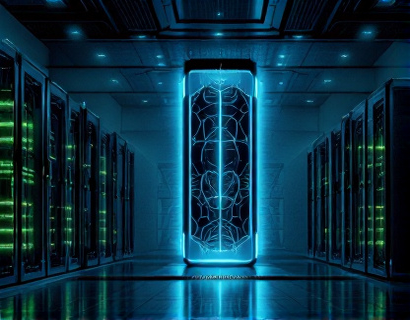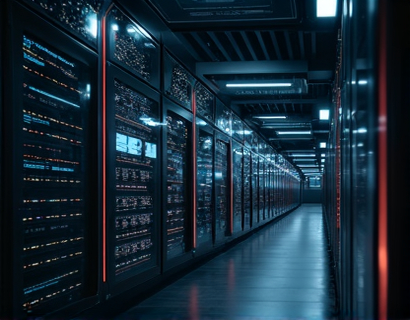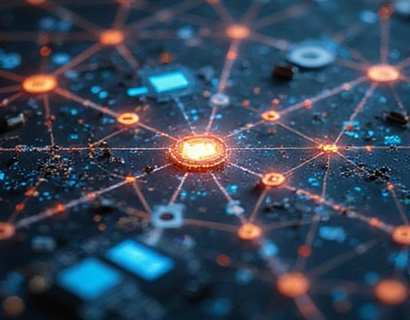Autonomous AI Agents: Streamlining Business Processes Across Blockchains and Technologies for Enhanced Efficiency
In the rapidly evolving digital landscape, businesses are constantly seeking innovative solutions to streamline their operations and gain a competitive edge. One of the most transformative technologies emerging is the use of Autonomous AI Agents, which are redefining how complex tasks are automated and optimized across various blockchains and technologies. These AI agents are not just tools; they are intelligent entities designed to operate independently, making decisions and performing tasks with minimal human intervention. This article delves into the capabilities, benefits, and future potential of Autonomous AI Agents in enhancing business efficiency and productivity.
Understanding Autonomous AI Agents
Autonomous AI Agents are sophisticated software entities that can perform a wide range of tasks without explicit instructions for each action. These agents leverage advanced machine learning algorithms, natural language processing, and other AI techniques to understand their environment, make decisions, and execute actions. The key feature of these agents is their ability to operate autonomously, adapting to new situations and learning from experiences, much like human agents but without the need for constant supervision.
The integration of AI agents across multiple blockchains and technologies is particularly revolutionary. Blockchain, known for its decentralized and secure nature, provides an ideal environment for AI agents to function without central points of control or failure. By leveraging blockchain's transparency and immutability, AI agents can ensure that transactions and data exchanges are secure and verifiable, reducing the risk of fraud and errors.
Cross-Chain Compatibility
One of the most significant challenges in the blockchain ecosystem is the interoperability between different blockchain platforms. Traditional blockchain systems often operate in silos, making it difficult for businesses to seamlessly integrate and utilize multiple blockchains. Autonomous AI Agents bridge this gap by acting as intermediaries that can communicate and interact with various blockchain networks. These agents can facilitate cross-chain transactions, data sharing, and smart contract execution, ensuring a smooth and efficient flow of information and assets across different platforms.
For instance, an AI agent can automatically detect when a transaction on one blockchain requires a corresponding action on another blockchain. It can then initiate the necessary steps, such as transferring assets or executing smart contracts, without human intervention. This capability not only enhances operational efficiency but also opens up new possibilities for decentralized applications and services that span multiple blockchain ecosystems.
Automation of Complex Business Processes
Autonomous AI Agents excel in automating complex business processes that traditionally required manual oversight and intervention. These processes can range from supply chain management and inventory control to financial transactions and customer service. By automating these tasks, businesses can significantly reduce operational costs, minimize human errors, and free up staff to focus on higher-value activities.
Consider supply chain management, a process that involves numerous stakeholders and steps, from raw material sourcing to product delivery. An AI agent can monitor and optimize each stage, from inventory levels and shipping schedules to customs clearance and delivery tracking. By analyzing real-time data and predicting potential bottlenecks, the agent can proactively adjust processes to ensure smooth and efficient operations. This level of automation not only speeds up the supply chain but also enhances transparency and accountability.
Enhancing Financial Processes
In the financial sector, Autonomous AI Agents can revolutionize how businesses handle transactions, compliance, and risk management. For example, AI agents can automate the process of cross-border payments by interacting with multiple blockchain networks and financial institutions. They can verify transactions, convert currencies, and ensure compliance with regulatory requirements all in real-time. This not only accelerates the payment process but also reduces the risk of errors and fraud.
Additionally, AI agents can assist in regulatory compliance by continuously monitoring transactions and identifying potential issues. They can flag suspicious activities and generate reports for auditors, ensuring that businesses remain compliant with evolving regulations. This proactive approach to compliance can save businesses significant time and resources, allowing them to focus on strategic growth initiatives.
Optimizing Customer Service
Customer service is another area where Autonomous AI Agents can make a substantial impact. By integrating with chatbots and virtual assistants, these agents can provide 24/7 support to customers, handling inquiries, resolving issues, and offering personalized recommendations. AI agents can analyze customer data to understand preferences and behavior, enabling more tailored and effective interactions.
For instance, an AI agent can detect a customer's frustration in a chat conversation and escalate the issue to a human agent if necessary. It can also proactively offer solutions based on past interactions and customer history, improving satisfaction and loyalty. This level of automation not only enhances the customer experience but also reduces the workload on human support teams, allowing them to focus on more complex and critical tasks.
Benefits of Autonomous AI Agents
The adoption of Autonomous AI Agents brings a multitude of benefits to businesses. Here are some of the key advantages:
- Increased Efficiency: AI agents can perform tasks faster and more accurately than humans, reducing processing times and improving overall productivity.
- Cost Reduction: By automating routine and repetitive tasks, businesses can lower operational costs and allocate resources more effectively.
- Enhanced Security: The use of blockchain and AI ensures that data and transactions are secure and tamper-proof, reducing the risk of breaches and fraud.
- Scalability: AI agents can handle increasing volumes of data and transactions without a decrease in performance, making them ideal for growing businesses.
- Improved Decision-Making: AI agents can analyze vast amounts of data to provide insights and recommendations, supporting data-driven decision-making.
Challenges and Considerations
While the benefits of Autonomous AI Agents are clear, there are also challenges and considerations that businesses should be aware of. One of the primary concerns is the initial investment required to implement these agents. Developing and deploying AI agents can be costly, especially for small and medium-sized businesses. However, the long-term savings and efficiency gains often justify the upfront expenses.
Another challenge is the need for skilled personnel to design, implement, and maintain AI agents. Businesses must invest in training or hire experts in AI and blockchain to ensure the successful integration of these agents. Additionally, there is a risk of over-reliance on automation, which can lead to job displacement. It is crucial for businesses to strike a balance between automation and human involvement, ensuring that employees are reskilled and redeployed to higher-value roles.
Future Prospects
The future of Autonomous AI Agents looks promising, with ongoing advancements in AI, machine learning, and blockchain technology. As these technologies mature, AI agents will become more sophisticated, capable of handling even more complex tasks and integrating with a wider range of systems. Here are some potential developments to watch:
- Enhanced Learning Capabilities: AI agents will become better at learning from their environment and adapting to new situations, reducing the need for manual reprogramming.
- Greater Interoperability: Efforts to standardize blockchain protocols and AI interfaces will make it easier for agents to operate across different platforms and ecosystems.
- Increased Autonomy: AI agents will gain more independence, making more complex decisions with minimal human oversight.
- Integration with IoT: The combination of AI agents with the Internet of Things (IoT) will enable more intelligent and responsive systems, from smart cities to industrial automation.
As the ecosystem around Autonomous AI Agents continues to grow, businesses that embrace these technologies will be well-positioned to thrive in the digital age. By leveraging the power of AI and blockchain, companies can achieve unprecedented levels of efficiency, security, and innovation, ultimately gaining a significant competitive advantage.









